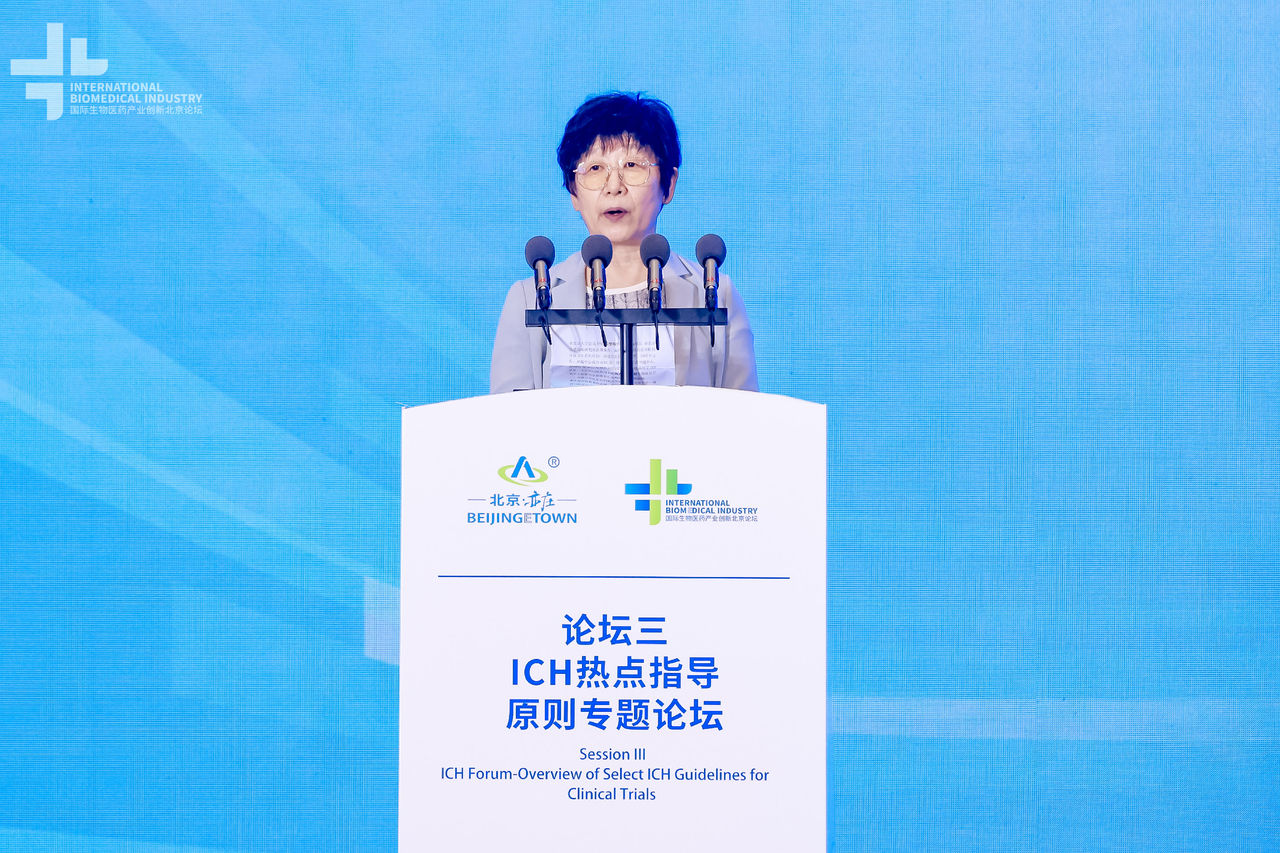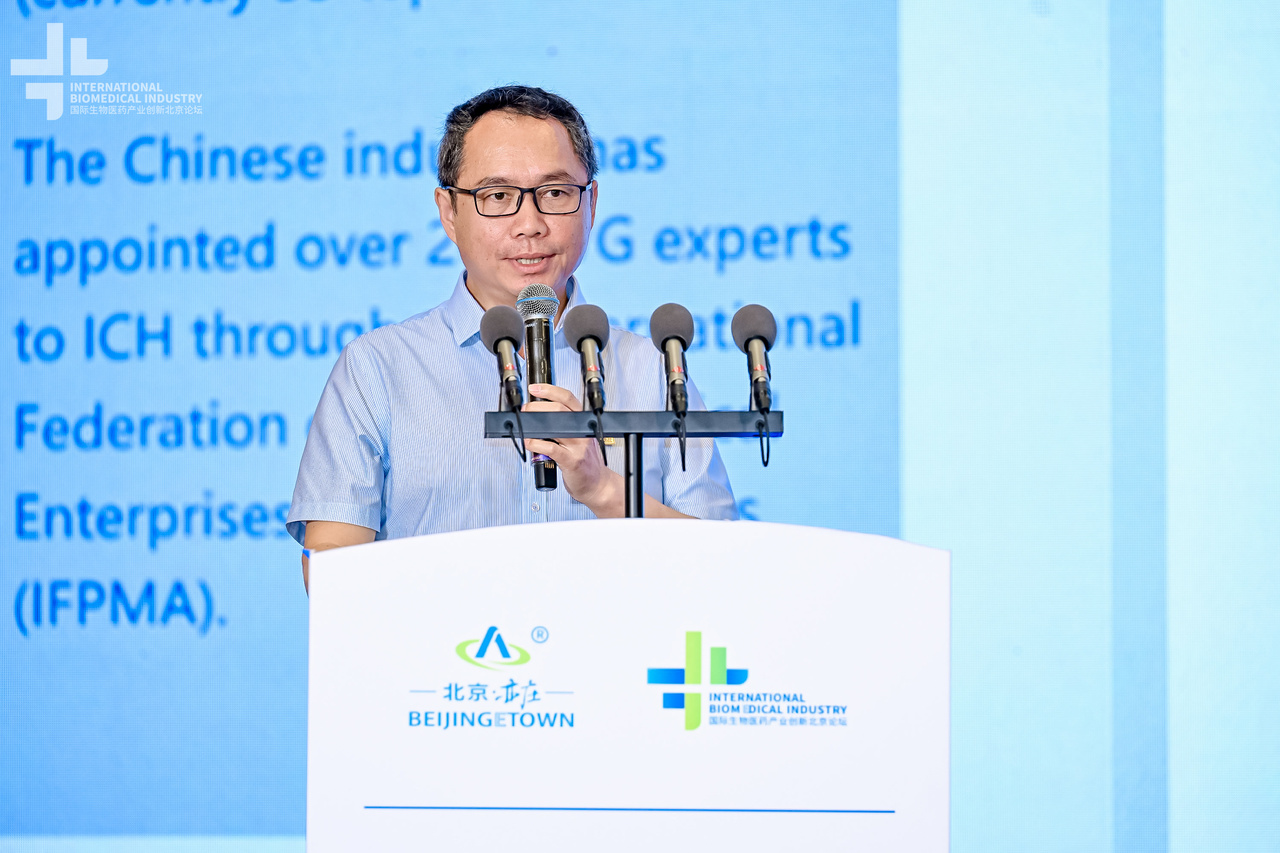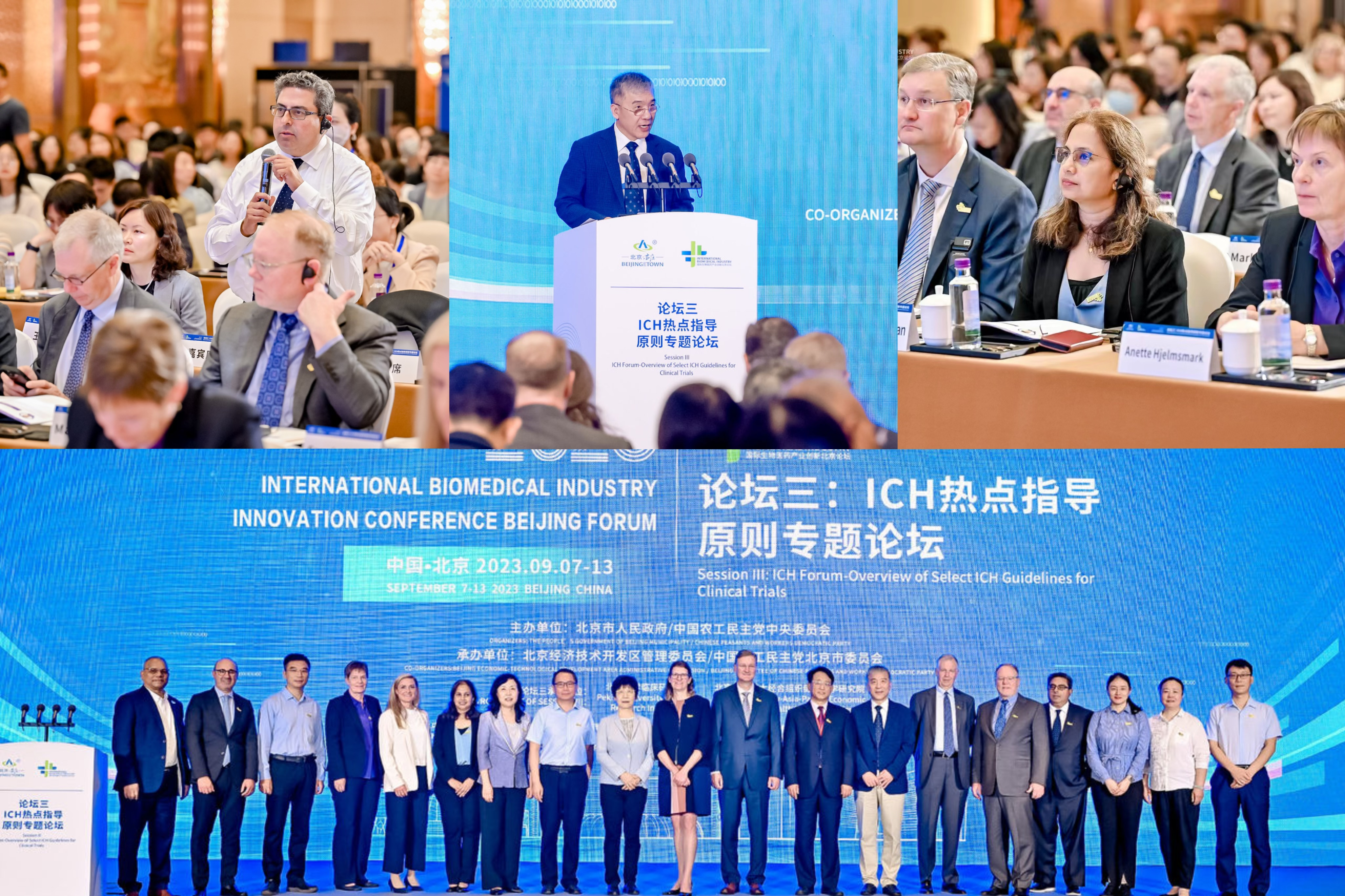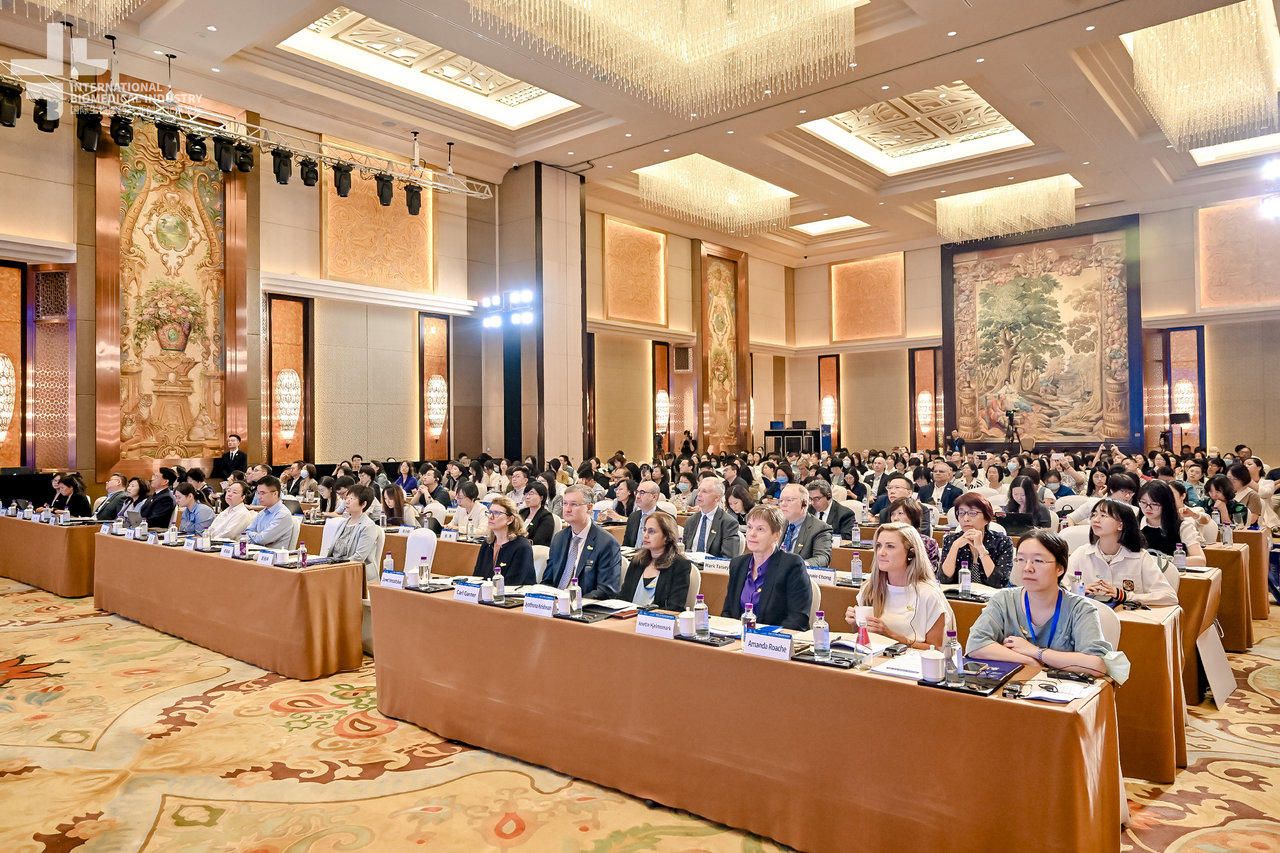Session III of the International Biomedical Industry Innovation Conference Beijing Forum — ICH Forum-Overview of Select ICH Guidelines for Clinical Trials held in Beijing
Sep 13, 2023
Peking University, September 13, 2023: On the afternoon of September 7, 2023, the first International Biomedical Industry Innovation Conference Beijing Forum (IBIIC•BJF) opened in the Beijing Economic-Technological Development Area.
The forum was organized by the Central Committee of the Chinese Peasants and Workers Democratic Party (CPWDP) and the People's Government of Beijing Municipal, and was co-organized by the Beijing Committee of the Chinese Peasants and Workers Democratic Party, the Beijing Economic-Technological Development Area Administrative Commission, and the Beijing Municipal Medical Products Administration.
Yin Li, a member of the Political Bureau of the Communist Party of China Central Committee and secretary of the CPC Beijing Municipal Committee, delivered a speech and announced the opening of the forum. Yin Yong, deputy secretary of the CPC Beijing Municipal Committee and mayor of Beijing, hosted the first half of the opening ceremony, and Wang Jinnan, vice chairman of the CPWDP and chairman of the CPC Beijing Municipal Committee, hosted the second half of the opening ceremony.
Qiao Jie, an academician of the Chinese Academy of Engineering, executive vice president of Peking University, and president of PKU Health Science Center, Jiang Jiandong, an academician of the Chinese Academy of Engineering and head of the Chinese Academy of Medical Sciences' Institute of Materia Medica, and Xiaoliang Sunney Xie, an academician of the Chinese Academy of Sciences, attended the conference and delivered keynote speeches.
As an integral component of the IBIIC•BJF, the ICH Forum-Overview of Select ICH Guidelines for Clinical Trials (ICH Forum) was held on September 11, 2023, in the Beijing Economic-Technological Development Area. Co-organized by the Peking University Clinical Research Institute (PUCRI) and the Peking University-Asia-Pacific Economic Cooperation Health Science Academy (HeSAY), this forum garnered widespread attention on both domestic and international fronts.
The ICH Forum attracted over 400 participants, including experts from the United States, the European Union, Singapore, and various other nations and regions, as well as top executives from ten Fortune 500 pharmaceutical companies. Representatives from Chinese government agencies, the pharmaceutical industry, research institutions, hospitals, and media outlets also attended the event. 25 drug and medical device regulators from Mexico, Peru, Malaysia, and the Philippines, among other regions, attended the forum online.
Wu Yangfeng, the executive associate director of PUCRI, Wang Yun, vice president of Science & Regulatory Affairs of the R&D-based Pharmaceutical Association Committee, China Association of Enterprises with Foreign Investment (RDPDC), and Janet Vessotskie, deputy vice president of Science and Regulatory Advocacy at the Pharmaceutical Research and Manufacturers of America (PhRMA) and a member of the ICH Management Committee, served as co-chairs of the ICH Forum. The opening remarks were delivered by Zheng Xiaoying, dean of HeSAY, while Wen Baoshu, head of the Office of Quality Management of the Center for Drug Evaluation (CDE) and ICH Coordinator of the National Medical Products Administration (NMPA), delivered a keynote address.

Zheng Xiaoying pointed out that Peking University has always adhered to the principles of openness and compatibility, fostering innovation and actively engaging in collaborations with all parties. In the future, with the strong support from the NMPA, she hoped that Peking University could leverage its robust international cooperation platform to fully utilize its abundant expertise, research, and teaching resources. Through extensive collaboration, efforts will be made to enhance talent development and regulatory scientific research, creating an open and sustainable academic platform for cooperation among the government, academia, and industry, she highlighted, adding that the platform would facilitate capacity building, harmonization, and cooperation in international drug regulation, while providing scientific evidence and recommendations for the formulation of drug regulatory policies, guidance, and standards.

In his keynote speech, Wen Baoshu pointed out that in a bid to improve the level of China's pharmaceutical industry, enhance its new drug research and development capabilities, and promote Chinese pharmaceutical companies to go abroad, China's drug regulatory authorities joined the International Council for Harmonisation of Technical Requirements for Pharmaceuticals for Human Use (ICH) in 2017, and officially became the 8th member of the global ICH regulatory body the next year.
Wen further noted that in 2021, the NMPA was re-elected as a member of the ICH Management Committee and successfully incorporated globally accepted technical requirements for drug development and registration. In promotion of ICH's work, the Center for Drug Evaluation (CDE) of the National Medical Products Administration (NMPA) collaborated closely with Peking University, and its APEC Regulatory Science Excellence Center in a range of activities in the dissemination, training, research, implementation, and development of related guidelines.
The ICH Forum received strong support from the China Center for Food and Drug International Exchange (CCFDIE), China Association of Enterprises with Foreign Investment R&D-based Pharmaceutical Association Committee (RDPAC), Pharmaceutical Research and Manufacturers of America (PhRMA), and the European Federation of Pharmaceutical Industries and Associations (EFPIA). Seventeen experts, comprising members of the International Pharmaceutical Associations and the ICH guidance Expert Working Group, as well as representatives from Chinese regulatory authorities and academic experts, gathered to discuss matters of concerns in the industry.
The ICH Forum gathered domestic and international experts and associations resources to discuss hot topics of international regulations, aiming to help stakeholders keep abreast of the latest developments in the global biomedical industry while improving the capacity and impact of China's drug regulatory authority. With a focus on innovation and internationalization, the IBIIC•BJF facilitated comprehensive discussions on cutting-edge technologies, innovative achievements, and international regulations within the realm of biomedicine. It also helped promote international exchanges, cooperation, and mutual learning, creating a robust platform for the high-quality development of the biomedical industry.

Group photo
Extended reading
To strengthen international cooperation in the field of health, the Peking University Asia-Pacific Economic Cooperation Health Science Academy (HeSAY) was established in 2015. Two years later, with the support of the National Medical Products Administration (NMPA), the Peking University APEC Center of Excellence (CoE) in Regulatory Sciences was officially approved and became one of the first APEC CoEs in the world. Various training programs organized by the CoE had received ICH authorization from 2019 to 2022. To date, CoE has trained 467 drug and medical device regulators from APEC member economies, significantly contributing to the advancement of global regulatory cooperation and harmonization.
The ICH Forum is the 11th ICH guidance-related training organized by the PKU HeSAY Regulatory Sciences CoE. These trainings have helped to improve drug regulatory capacity in China and the Asia-Pacific region, and have enhanced regulators' understanding of ICH guidance. The hosting of this forum underscores the CoE's ongoing commitment to leveraging its strengths, consolidating resources, and striving for platform creation. By actively promoting and deepening ICH-related guidance, the CoE strives to improve global drug regulation capabilities and harmonization.
Edited by: Dennis Meng
Source: Peking University Asia-Pacific Economic Cooperation Health Science Academy, Peking University Clinical Research Institute



